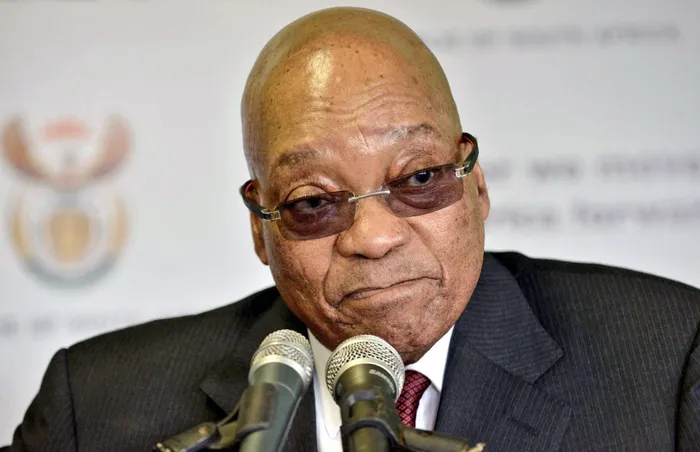SA: National interest in remission of former President Jacob Zuma

File picture: President Jacob Zuma. Picture: Oupa Mokoena/African News Agency (ANA).
By Professor Sethulego Matabesi
Former president Jacob Zuma has dominated South African politics for the past five years, after his resignation as president in 2018.
With a presidency beset by controversy, Zuma has developed a reputation for being a messiah for some and a divisive figure for others within and outside the ruling ANC. And in a predictable reaction, familiar fault lines emerged from AfriForum, the DA, and several other civil society organisations after the national commissioner of correctional services announced Zuma had been released on special remission due to over-crowding in prisons.
There was no shortage of foul cries from opposition parties who believed the rush to release thousands of prisoners early was a guise to ensure Zuma did not stay a single day in prison for contempt of court.
But to what extent, if at all, was the decision taken by President Cyril Ramaphosa to save the country from a repeat of the July 2021 riots in Kwazulu-Natal and Gauteng or politically motivated?
Political ramifications
As a country with a Bill of Rights and a supreme Constitution, the rule of law reigns supreme. And contrary to the views of many, the remission decision by Ramaphosa is constitutional and valid.
Over the past two decades, Zuma has had so many battles with the law that many citizens may believe that the authority of the state, whose primary role is to uphold the rule of law, has been challenged by the remission decision. But none of these battles, including the possibility of returning to jail, resulted in Zuma’s getting off the public stage.
In fact, he has remained resolute he can determine his fate as he has aptly demonstrated his fighting spirit in the face of adversity over the past few years.
Bold statements by the security cluster that they were ready for any eventualities regarding Zuma’s possible arrest should be bemoaned as we have become accustomed to a reactionary, rather than a proactive, police service.
It is, therefore, confirmed the remission decision has partly prevented vulnerable communities from the violent disruptions and fatalities accompanying riots.
However, let me hasten to state the rule of law is one of the UN’s basic ideals and principles that member states, such as South Africa, must help sustain its promotion and practice.
For its part, South Africa has demonstrated how, at times, driven by its deterministic ethos, it has little regard for international resolutions of which it is a signatory.
Thus, one must be cautious to advance that the reason for the remission of sentence announced by the government was to mislead the public. But one cannot rule out that the entrenched power structures within the government influenced the decision-making process about Zuma’s remission. The behind-the-scenes shenanigans of the power structures will, undoubtedly, be kept away from the public domain. And on he eve of what will be fiercely contested national elections in 2024, the ANC demonstrated its stance when its secretary-general, Fikile
Mbalula, announced the party did not want to see Zuma going back to jail and that Minister of Justice and Correctional Services Ronald Lamola was overseeing that process.
Therefore, we should not be surprised when Zuma’s special remission of sentence is used as a proxy for the corrosion of the social fabric of society, the weakening of the rule of law, and low levels of trust in the government.
Time for Zuma to step back from public exposure After many years of being at the political forefront, besides the legal challenges that linger around him, it is worth exploring, not trying to prevent the former president from remaining trapped in the intensity of public exposure.
While the implications of Zuma’s special remission remain deeply contested, accepting that Zuma can play a role, albeit in a limited way, in the upliftment of disadvantaged communities and mainstream politics may be a challenging and painful reality.
But doing so can provide those ardent supporters of the former president with a legacy they can be proud of. And this is a challenge that can be dealt with only by Zuma’s advisers. It is hard to tell how keen they will be on such a life trajectory for the former president.
*Matabesi is an associate professor and head of the Department of Sociology at the University of the Free State.